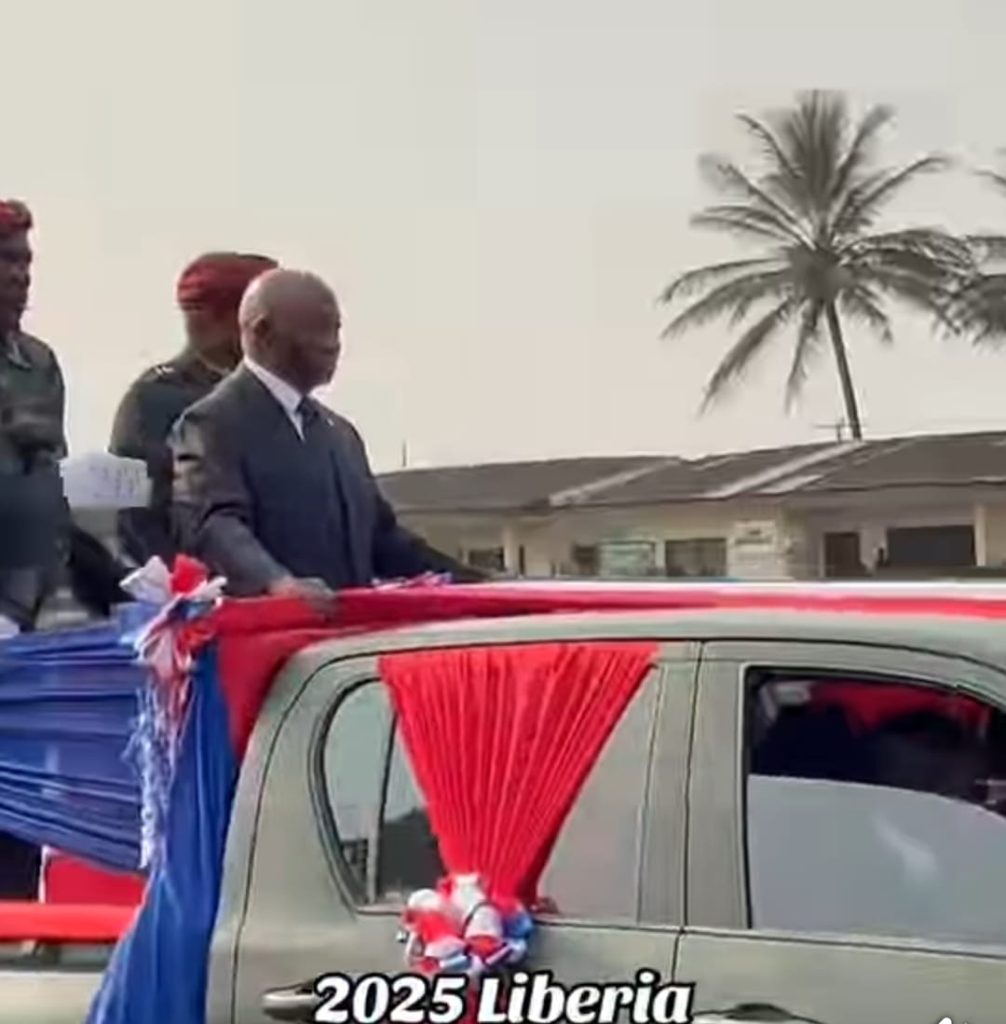President Joseph Nyuma Boakai’s decision to inspect troops from a military vehicle during Liberia’s 68th Armed Forces Day has ignited a firestorm of criticism, raising concerns about his physical fitness and sparking a national debate about presidential protocol. The unprecedented move, which deviated from the tradition of commanders-in-chief personally walking the ranks, has fueled speculation and amplified anxieties about Boakai’s capacity to lead. While his press secretary defended the action as a presidential prerogative, dismissing the criticism as trivial, many Liberians remain unconvinced, pointing to the precedent set by previous presidents, including Ellen Johnson Sirleaf, who consistently inspected troops on foot despite being older than Boakai.
The controversy centers around the February 11th, 2025, celebration at the Barclay Training Center in Monrovia. While dignitaries, including Sierra Leonean President Julius Maada Bio and former President Sirleaf, looked on, President Boakai was escorted to a decorated military pickup truck for the troop inspection. This departure from established practice immediately drew attention, with observers questioning the rationale behind the decision. The traditional inspection, a symbolic display of the commander-in-chief’s engagement with the armed forces, holds significance in assessing the military’s readiness and capability. Boakai’s choice to conduct this assessment from a vehicle has been interpreted by some as a sign of physical frailty, raising doubts about his ability to fulfill the demanding duties of the presidency.
Presidential Press Secretary Kula Fofana attempted to quell the growing unease by emphasizing Boakai’s authority as commander-in-chief, asserting his right to determine how he conducts the inspection. She further urged the public to focus on the positive aspects of the celebration, particularly the presence of President Bio as keynote speaker, and highlighted Boakai’s efforts in strengthening the armed forces. Fofana also pointed to examples of other world leaders using vehicles for similar events, arguing that Boakai’s action was not unusual. However, her defense failed to resonate with many Liberians, who remained skeptical and concerned about the implications of the president’s choice.
The core of the criticism lies in the symbolic nature of the troop inspection. It’s viewed as a demonstration of the commander-in-chief’s physical stamina and commitment to the troops, a tradition that underscores the leader’s connection with the military. By breaking with this tradition, Boakai inadvertently signaled a potential vulnerability, opening himself up to questions about his health and capacity for leadership. The contrast with his predecessors, particularly Sirleaf, who consistently walked the ranks despite her advanced age, further intensified the scrutiny. This comparison fueled perceptions of Boakai as physically unfit, exacerbating public anxieties about his ability to effectively lead the nation.
The public outcry intensified as the event unfolded. Witnesses recounted the scene, describing Boakai being escorted to the pickup truck, riding along the lines of troops, and then returning to his seat after the brief inspection. The visual of the president conducting this crucial task from a vehicle, rather than engaging directly with the troops, seemed to solidify the narrative of physical decline. Many onlookers expressed disappointment and concern, openly questioning Boakai’s fitness to govern. Some compared him unfavorably to former President George Weah, further highlighting the growing perception of his physical limitations.
The incident has sparked a broader discussion about presidential transparency and the importance of physical fitness in leadership. While Fofana’s defense focused on presidential prerogative, critics argue that such displays carry significant symbolic weight and should not be dismissed lightly. The public’s concern transcends mere protocol; it reflects a deeper anxiety about the president’s health and his capacity to effectively manage the nation’s affairs. The incident serves as a reminder of the scrutiny placed on leaders and the importance of maintaining public trust through both action and symbolic gestures. The debate continues to unfold, leaving many Liberians questioning the implications of President Boakai’s decision and seeking further reassurance about his ability to lead.














